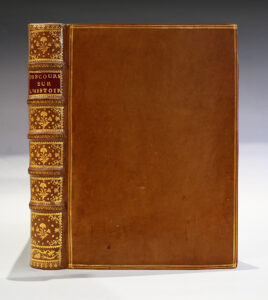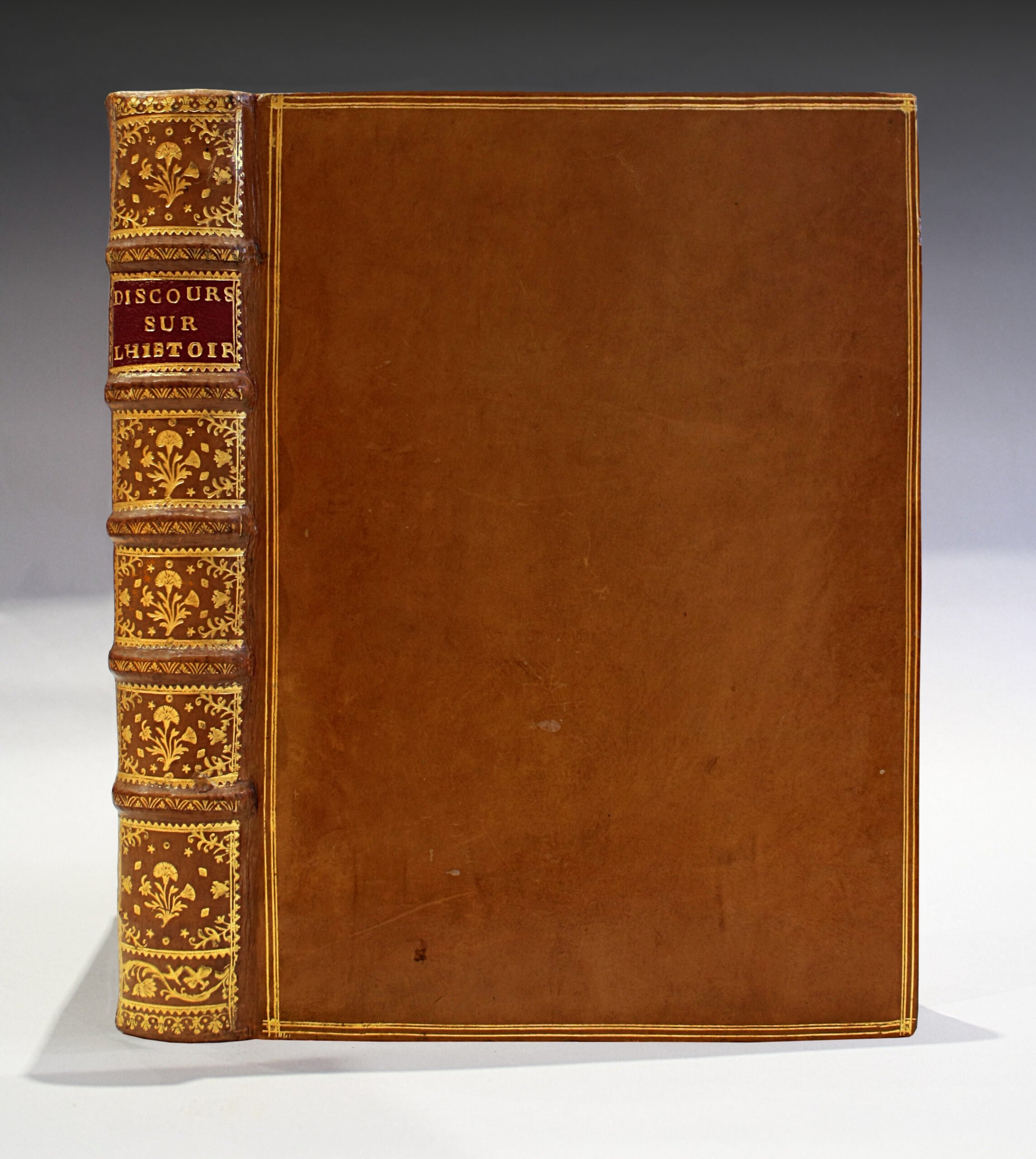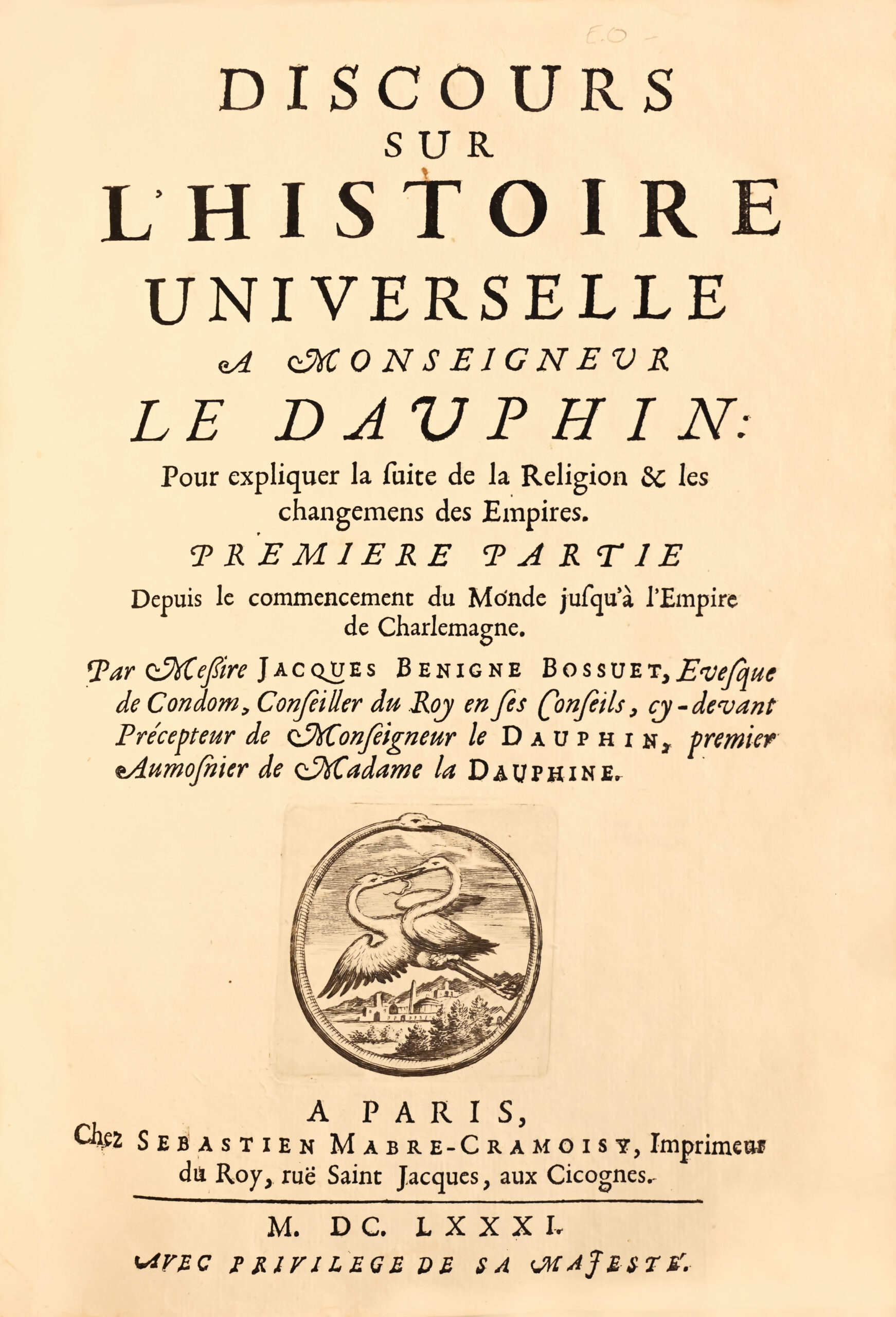Paris, Sébastien Mabre-Cramoisy, 1681.
4to [257 x 188 mm] of (1) l., 561 pp., (7). Bound in contemporary blond glazed calf, triple gilt fillet around the covers, spine ribbed and decorated with gilt fleurons, red morocco lettering pieces, red edges. Contemporary binding.
First edition.
Tchemerzine, I, 842.
“The ‘Discourse on Universal History’ published in 1681 is a tremendous masterpiece which has been compared to ‘The City of God’ of St. Augustine and which presents as a philosophy of history, since the origins until the Christian period. Very informed, based on a multitude of facts, on a knowledge of history, particularly of Roman history, as complete as it was possible onto this date, his central idea is that God governs the world in respect of human freedom.
“What is chance with regard to our uncertain counsels is a design concerted in a higher counsel, that is, in that eternal counsel which contains all causes and effects in the same order. Good spirits continue to hold the ‘Discourse’ as Bossuet’s major work and also as one of the capital works of French literature. Montesquieu did not eclipse it. It is unique in the majestic grandeur of its views and the controlled precision of its detail.
If this grandiose work marked the history of the human spirit, it also marked a stage in the history of the spirit of Bossuet. It formed in him, one can say, the historian in the modern sense of the word “.
The ‘Discourse on universal history’ is also a course of general history which was written only for the education of the dauphin. Based on the Revelation, it embraces all the time that has passed since the creation of the world to the Emperor Charlemagne.
“It is divided into three parts; the first is entitled ‘Les époques’; the second, ‘La suite de la religion’ and the third ‘Les empires’.”
In the first, the author attempts to summarize in chronological order the main events the world was a stage for. In the second, he approaches the Christian religion: exalting its progressive march, he shows how, prepared by Moses, it leads to the triumph of the Church. In the last, he studies the Antique empires: the causes of their greatness and decay, their slow mutual destruction, their unification finally by the Romans – which was to facilitate the spread of the Gospel.”
“The ‘Discours sur l’Histoire universelle’ does great credit to its author in the very measure in which it allows us to admire the incredible resources of his genius. It is not only that style full of antitheses which makes him the greatest of our prose writers. But the very substance of the work: the wealth of information is matched here only by the breadth of conception. Let us add to this the reliability of the analysis. From where it follows that, apart from the objective and the means, Bossuet reveals himself here the precursor of Montesquieu”.
Precious wide-margined copy preserved in its first contemporary binding in blond glazed calf.
Provenance: the Cabinet de livres de M.A.P. de Fontenay Seigneur de Sommant, Noiron, Président et Lieutenant Général au Baillage et Siège Présidial d’Autun (engraved ex libris dated 1770).


